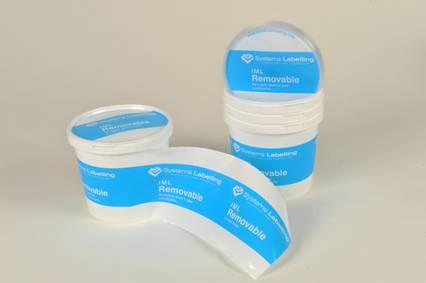Flexo label printing company Systems Labelling says its new R-IML removable inmould label represents “a major breakthrough in the development of recycled polypropylene”.
Post-use, the patent pending R-IML product can be completely removed during the recycling process or by the consumer, creating a solution to the challenge of removing the post-use printed decoration from injection moulded packaging, such as that used in high volumes for dairy and other food products, as well as cosmetic and household goods.
Currently, the company says, much of the waste from these sectors is sent to land-fill due to low demand for ‘jazz’, or black/grey pellets.
Systems Labelling CEO Steve Pickford says: “This innovation will contribute directly to the sustainability objectives set out in the Courtauld Commitment. This innovative breakthrough is set to revolutionise the inmould labelling market.
“We have developed a solution that will mould at the same temperatures and dwell times whilst performing in moist, chilled, damp or microwave conditions.”
If adopted across all sectors, the commercial and environmental benefits of R-IML would be “huge”, the company says: “The ability to recycle natural/clear or white polypropylene to its original state displaces the use of virgin resin in consumer product packaging for colour sensitive applications, providing a commercial value for all stakeholders.”
Defra and WRAP reportedly estimate that for every 1 tonne of PP recycled, approximately 1 tonne in CO2 emissions would be saved.
According to Systems Labelling, the widespread use of PP means it is the third most common polymer found in household waste in the UK after high density polyethylene (HDPE) and polyethylene terephthalate (PET). Unlike milk and drinks bottles, PP packaging is used in many different grades and colours making it difficult to recycle.
"Major breakthrough": new removable inmould label from Systems Labelling


